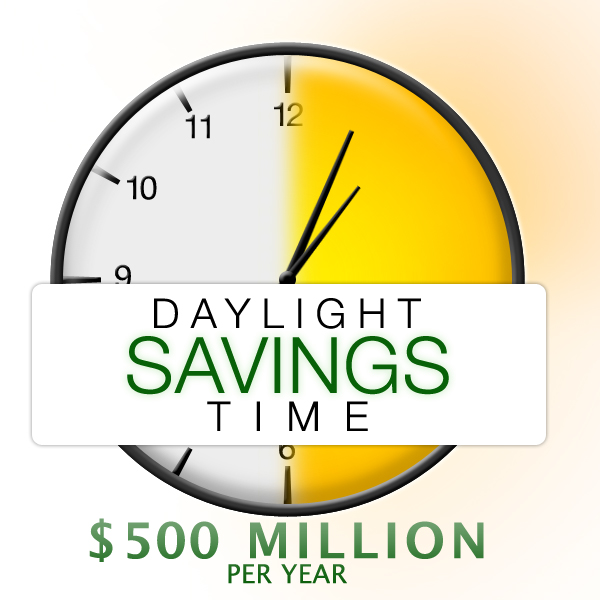Markey & Upton: Time Really is Money with Daylight (and Energy) Saving Bill
DOE report vindicates money and energy savings from Markey-Upton legislation extending Daylight Saving Time

WASHINGTON, DC (March 5, 2009) – Rep. Edward J. Markey (D-Mass.) and Rep. Fred Upton (R-Mich.), Chairman and Ranking Member of the House Energy and Commerce Committee’s Subcommittee on Energy and Environment, today said that the Markey-Upton Daylight Saving Time (DST) program saved American families nearly $500 million and 2.9 million barrels of oil during the extension of the program in 2007, according to a government report.
“This is one of the few times in life when we can actually prove the old adage that time is money,” said Markey. “Government analysis has proven that extra sunshine provides more than just smiles. Daylight Saving Time not only saves consumers money, but also curbs the nation’s energy consumption, while reducing carbon emissions that lead to global warming.”
“Between energy conservation, fewer traffic accidents and keeping kids safe on Halloween, the benefits of extending Daylight Saving Time are many – not to mention the additional hour of sunshine in the evening will help chase away the winter blues,” said Upton. “Government studies have proven the more daylight during the waking hours, the less electricity people use – most importantly, America’s families struggling to get by are now seeing real savings in their power bills.”
As part of the 2005 Energy Bill, Markey and Rep. Fred Upton amended the Uniform Time Act of 1996 to increase the portion of the year that is subject to DST, providing longer hours of daylight and helping consumers cut back on peak-hour electricity usage. The Markey-Upton Amendment extended the duration of DST in the spring by changing its start date from the first Sunday in April to the second Sunday in March, and in the fall by changing its end date from the last Sunday in October to the first Sunday in November.
The amendment required that the Department of Energy prepare a report evaluating the impact of the extended DST program. The key findings of the DOE report, issued in October 2008, included:
The total electricity savings of Extended Daylight Saving Time were about 1.3 Tera Watt-hour (TWh). This corresponds to a reduction in total use per individual of 0.5 percent per each day of Extended Daylight Saving Time.
These savings translate to $498 million in electricity savings and reduced oil usage of 2.9 million barrels of oil.
During Extended Daylight Saving Time, electricity savings generally occurred over a three- to five-hour period in the evening with small increases in usage during the early-morning hours.
CLICK HERE for the full DOE report.
The Select Committee was active during the 110th and 111th Congresses. This is an archived version of the website, to ensure that the public has ongoing access to the Select Committee record. This website, including external links, will not be updated after Jan. 3rd, 2010.
![]() del.icio.us
del.icio.us
![]() Digg this
Digg this
![]() Reddit
Reddit
![]() Stumbleupon
Stumbleupon



